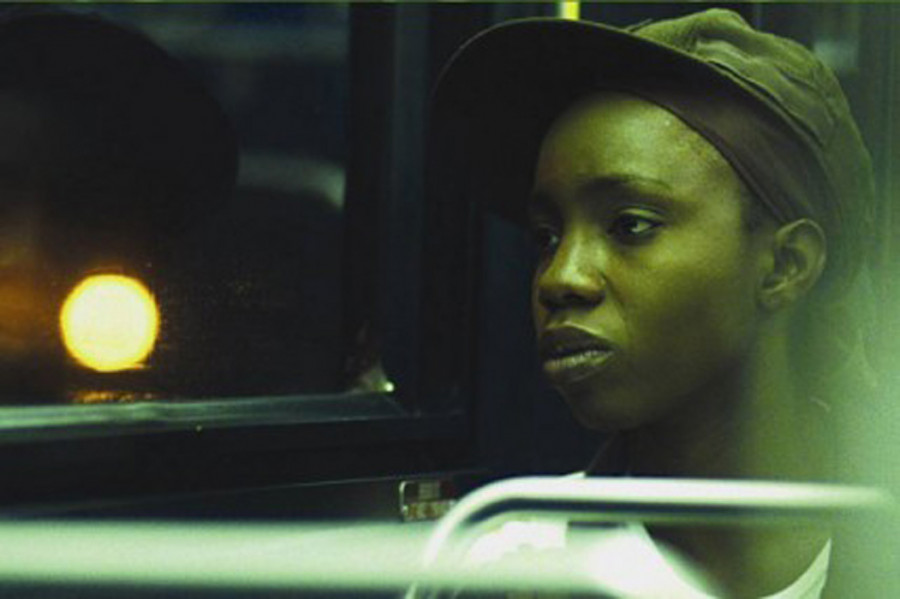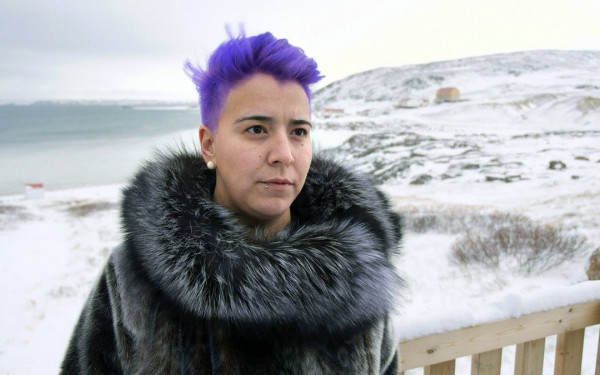Image+Nation Festival Supports Diversity
Leading LGBT Film Fest is 25 Years Old
Recognized as the leading event of its kind in Canada, the Image+Nation Festival has been supporting diversity through LGBT films for 25 years.
The festival takes viewers on a journey across the globe discovering the lives and struggles of a community whose place in society is still in question, and in some cases punishable by death.
“We think it’s really important to move outside of North America to illustrate life in other parts of the world where it is a different thing to be a queer person, where you can be jailed or killed for your identity” said Katharine Setzer director of Image+Nation programming for 15 years.
“This year is a really good example of that because our programming really is kind of all around the world. It is definitely our most international edition.”
From the critically praised Bullhead to the star-filled Struck by Lightning, acclaimed documentary Call Me Kuchu and the crowd pleasing BearCity sequel, this year brings a wide variety of film genres and categories.
Usually held in October and overlapping the Festival du Nouveau Cinéma, the event was moved to one month later because it could not compete with the other festivals.
“Our main goal of course is to expand our audience” said Setzer, encouraging everyone who is interested in learning about world’s LGBT communities to come to the screenings.
image+nation at Cinema du Parc (3575 Parc Ave.) and Cinema Beaubien (2396 Beaubien E.) / to Dec. 2 / Tickets $11.75 regular and $8.75 student
REVIEWS
Pariah
By Dee Rees
Dee Rees’ film—through its portrait of today’s youth—emotionally grabs the viewer and fosters empathy for Pariah’s young, troubled characters.
The Spike Lee-produced chronicle about a young black woman struggling with her homosexuality was screened for the first time in Montreal this week, five years after the short it’s based on prompted a shockwave through the film-festival scene, and almost two years after its premiere at Sundance.
The narrative follows the life of Laika, whose absent father and overprotective mother do everything they can to ignore signs of her sexual identity. The mother’s strong religious beliefs further alienate the teenager. The insecurity she develops creates sympathy for the submissive teenager.
After bonding with a new friend, Bina, she is struck by a kiss that leads to her first sexual experience. Ironically, Bina’s friendship was primarily imposed by Laika’s mother, to prevent her from hanging with ‘supposed’ lesbian friends.
The strong and evocative performance by Adepero Oduye as Laika grabs us with each look and silent moment. She embodies the hero we will never hear about.

Beauty
by Olivier Hermanus
After an 18-month tour of the world’s biggest festivals—including a world premiere at Cannes in 2011—this dark South African statement-film about a man’s hypocrisy, insecurity and narcissism made its Montreal debut this week.
François, a workshop owner in a small Afrikaner town, lives a dull life with his estranged wife. His only moment of satisfaction comes when he meets other men for secret orgies. His obsession with his friend’s son Christian is slowly revealed as he fakes a business trip in order to see him in Cape Town. He generally hides his homosexual inclinations.
Beauty is a very dark portrait of South African society where the superficial and spoiled youth is constantly reprimanded by the racist and homophobic older generation. Even the lovable Christian ends up being only interested in François’ money.
The shadow of apartheid is also still very present as the black characters are constantly repressed and ignored by the omnipresent white population.
The slow-paced movie takes time to grasp, especially for those not familiar with South African culture. However, as the film advances, we are mesmerized by the protagonist. The audience slowly falls into his twisted fantasies and personal issues.
Hermanus deals roughly with the subject matter. He does not spare a single generation or a single class; everyone harshly judged by the director’s crude eye. The slow transformation of François, as unsettling as it is, proves to be very evocative and poignant.

North Sea, Texas
by Bavo Defurne
The luxurious setting, the flamboyant characters, the symmetry and bright colors of the shots—yes, it looks like we are in a Wes Anderson film. But North Sea, Texas lacks the playfulness and comedic timing of Anderson’s work. Trying to deal with very serious and dramatic situations, it fails to engage the viewer with its unsympathetic protagonist. The ambiance and tone set by the beautiful Dutch beaches and fields save the movie from being completely boring.
Pim is a timid and obsessive teenager. He lives with his distant mother in an isolated region of Netherlands. While his accordionist mother flirts with men and drinks, Pim befriends the family next door.
This is where he meets Gino, with whom Pim discover his sexuality. Being his only source of happiness, Pim becomes dependent of his secret lover.
What unfolds is pretty much what you would expect from a love story which hopes for some dramatic action and conflict. Gino falls in love with a French girl, thus denying his homosexuality and love for Pim. Everything that ensues, including the dull and pompous ending, is unengaging, it feels like no effort was made to make these characters compelling.
As the film subtly deals with the absence of a father figure for Pim, the shallow narrative and uninteresting character manage to spoil what could have been a quest for purpose. Instead, we have a predictable love story with little more to offer.







__600_375_90_s_c1.jpg)